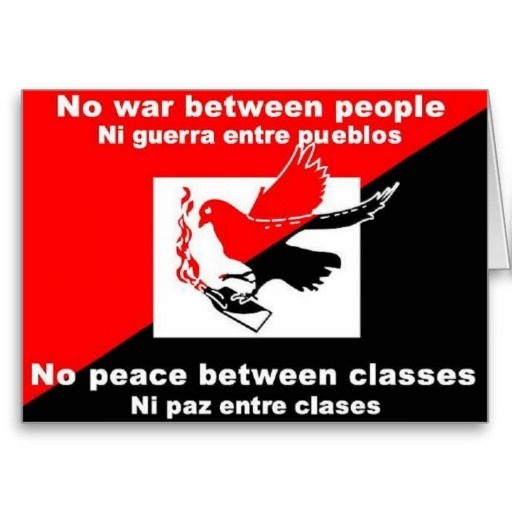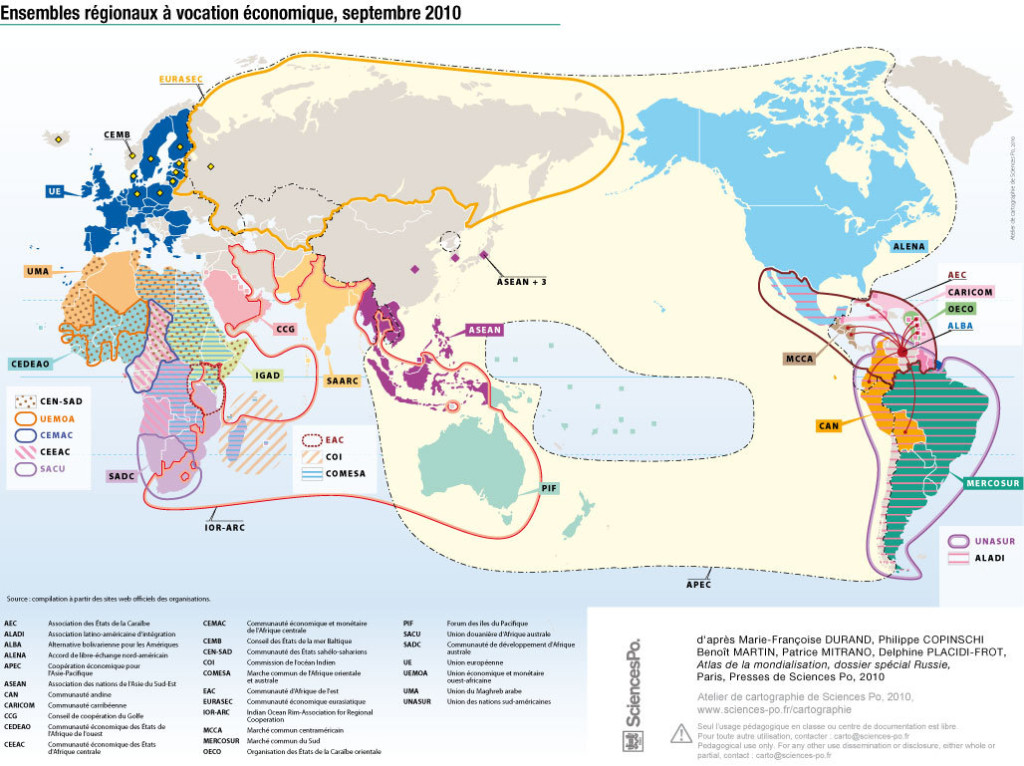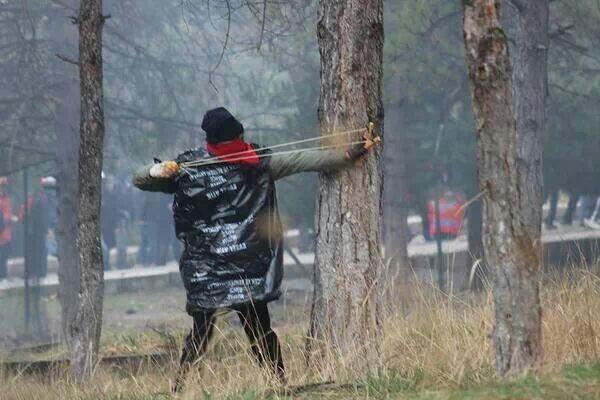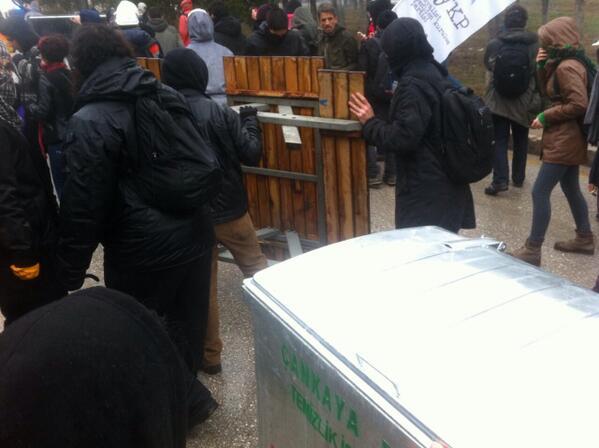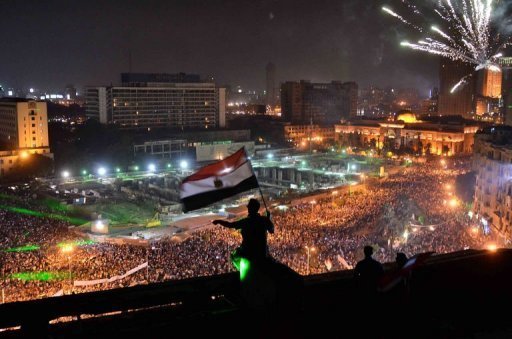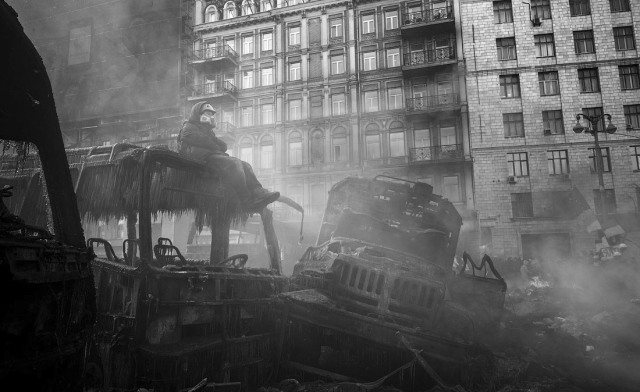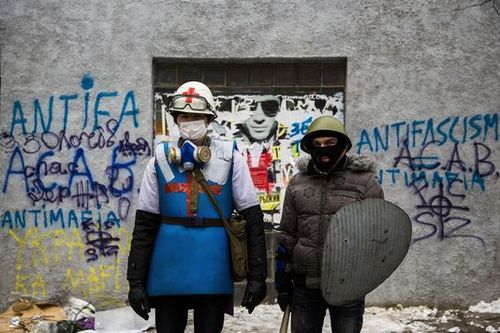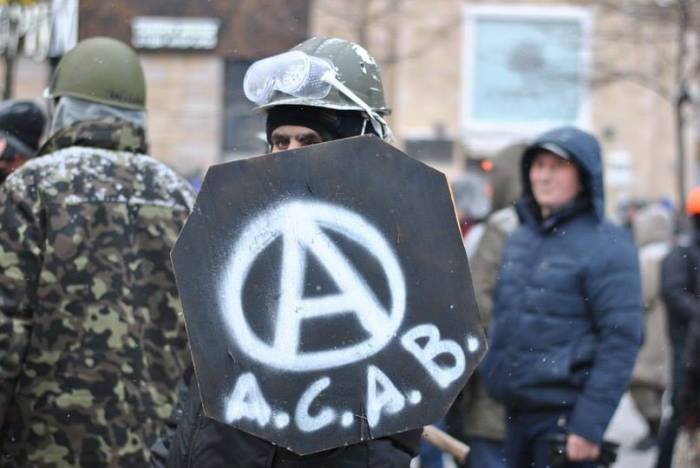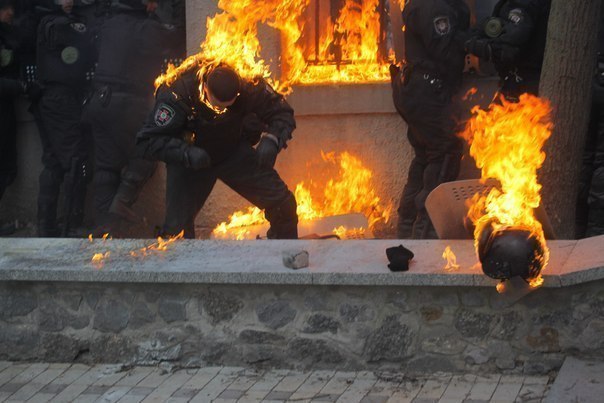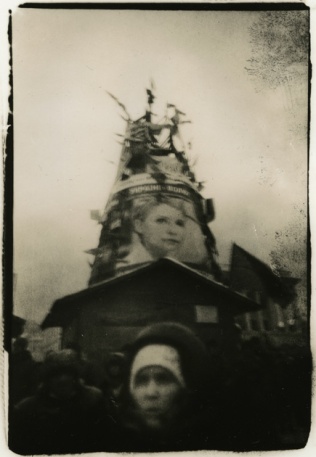Σύντομο κείμενο άποψης του Emir Suljagić που δημοσιεύτηκε στην εφημερίδα Oslobođenje στις 15 Φεβρουαρίου και αφορά τις διώξεις σε σχέση με τους εμπρησμούς κυβερνητικών κτιρίων στη Βοσνία. Το πρωτότυπο εδώ.
Emir Suljagić: Honor the Hooligans!
In the world they inhabit, Esed Radeljaš is a respectable citizen. The workers of Feroelektra are not starving and are not on the verge of a collective nervous breakdown. Hidrogradnja is still a company that built up half of the Middle East. Theirupstanding state has only one problem: a group of hooligans who set fire to several curtains of the Presidency building and who will therefore have to have their legs broken. To that end, the Federal Ministry of the Interior, publicly and to teach a lesson to the people who expressed their feelings by attacking the buildings of the Sarajevo Cantonal Government and the Presidency, has filed criminal charges against twenty or so young men — for terrorism.
No one in this country fought for walls and buildings; rather, blood was spilled for what these buildings represent. Today the building of the Presidency of BiH no longer means anything to anyone, with the exception of those inside it who receive inflated salaries. The young men who attacked the building last Friday see it as a tower of injustice that has reduced their parents to extreme poverty while bestowing entire hospitals to the wives of those who work there. You know how I know this? In the same way that I knew I was hungry even after 1995; in the same way I would eat only one meal a day up until 2001. And I know the disdain for government that hunger brings.
I hope that Dragan Lukač will remember his decision to charge a group of rowdy fans with terrorism when, at the coming October elections, the SDA is ousted and new bosses arrive. And next time, when the people — not rowdy fans, but their parents and all of us together — chase them down the bypass that is still missing three centimeters of asphalt, presumably then they will remember the decision to destroy the lives of the boys who one afternoon started a revolution on our behalf.
And let’s not fool ourselves: This is a political decision, because Lukač is only as independent as his nominal boss Predrag Kurteš is. Neither exists beyond the personal will of those who currently run their parties. This, then, after all that has happened and is still happening, is a decision made by Izetbegović and Lagumdžija: After sharing nothing with the people, not a single hardship, after twenty years of poking us in the eye and rubbing salt in our wounds to keep them from healing, now, while we’re lying on the ground, beaten . . . in the end, just like in Death and the Dervish, they will piss on us.
Those who believe that the charges are the result of an independent judicial action because the Presidency building is supposedly a symbol of the state should bear one thing in mind: Each of the companies that were destroyed by Izetbegović and Lagumdžija’s friends — including the one they now blame for the riots hanging over their own heads — is a better symbol of statehood, because each of them put bread on the table for thousands of families. Everything these men touch disappears. They destroyed fifty years of an entire people’s zeal in less than two decades. Crushed, laid to waste, buried. And what’s more, now they want to criminalize our right to rebel against it. Hungry peoples do not create states. Hungry peoples disappear.
For those who were not in Skenderija last Friday, let me say this: I met war veterans who, unlike the comfortable heads of the veterans’ associations, are starving; children of martyrs who, unlike Emina Ganić, don’t have plans and ambitions; employees of Hidrogradnja who show signs of starvation. And do you know what they had in common? They were all rooting for the “hooligans” and saying, “That’s right, f*** the bastards!”
As for the plenum organizers, the first thing they did was mortgage the young men who overnight made it possible for them to negotiate with the authorities on an equal footing. And so I ask: Are we in agreement that the prosecutors and judges, who for two decades now have been appointed by those in power, should prosecute not the demonstrators who attacked the buildings of the Canton and Presidency, but instead those who have destroyed our economy? If so, I propose that we help these young men, that we do something and not stand idly by while the government breaks the legs of those who, unlike us, had the courage to speak up on our behalf. Because on that day the “hooligans” were the most honorable citizens of our country.
(Published in Oslobođenje)


